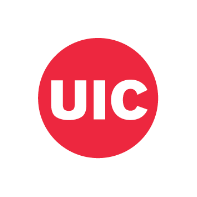Increasing Academic Success for Underrepresented Minority PhD Graduate STEM Students Through Self-Advocacy Education
There is a persistent gap in broad participation by underrepresented minority students in STEM PhD programs. Through the GREATS (GRaduate Education for Academically Talented Students) program, University of Illinois at Chicago hopes to provide these students with integral skill sets and knowledge that will equip them to successfully face ingrained climates of intimidation within STEM professions, and support their empowerment, agency, and authenticity for academic success and social integration in STEM fields.
The GREATS program had two primary goals, which were intertwined: to add much-needed diversity to academic communities in STEM and to examine how educational practices around self-advocacy can be further translated to other fields.
Read the abstract
Learn more about the GREATS program Lilley Laboratory on the College of Engineering
“I believe that that all students should experience a sense of belonging. Yet, this is not always the case, even for Latinx students at an Hispanic Serving Institution (HSI). Within the context of graduate education, students should experience a sense of belonging on campus, including the classroom and their research laboratories. Sense of belonging in their STEM profession is also critically important to sustain a career pathway in STEM. Thus, preparing historically minoritized STEM graduate students with self-advocacy skills is a transformative approach to helping them navigate a broad range of institutional climates and experiences as students and eventually their professional careers. Self-advocacy supports the students in their identity- and self-efficacy formation, while also strengthening their sense of authenticity, prioritizing their well-being and supporting their personal goals and values. For many students, this also means sustaining and supporting their desire to serve their communities as part of their professional efforts.
I was motivated to create the GREATS program from my personal experiences as a first generation Latina navigating academia and higher education within engineering. I am fortunate to be a faculty member at an R1 HSI, because it allows me the opportunity to serve my community and a highly diverse student population. My hope is that this program has a positive impact on the success of graduate students, and more broadly helps inform graduate programs at other institutions on a holistic approach to their professional development.”
-Carmen Lilley
Products & Publications

